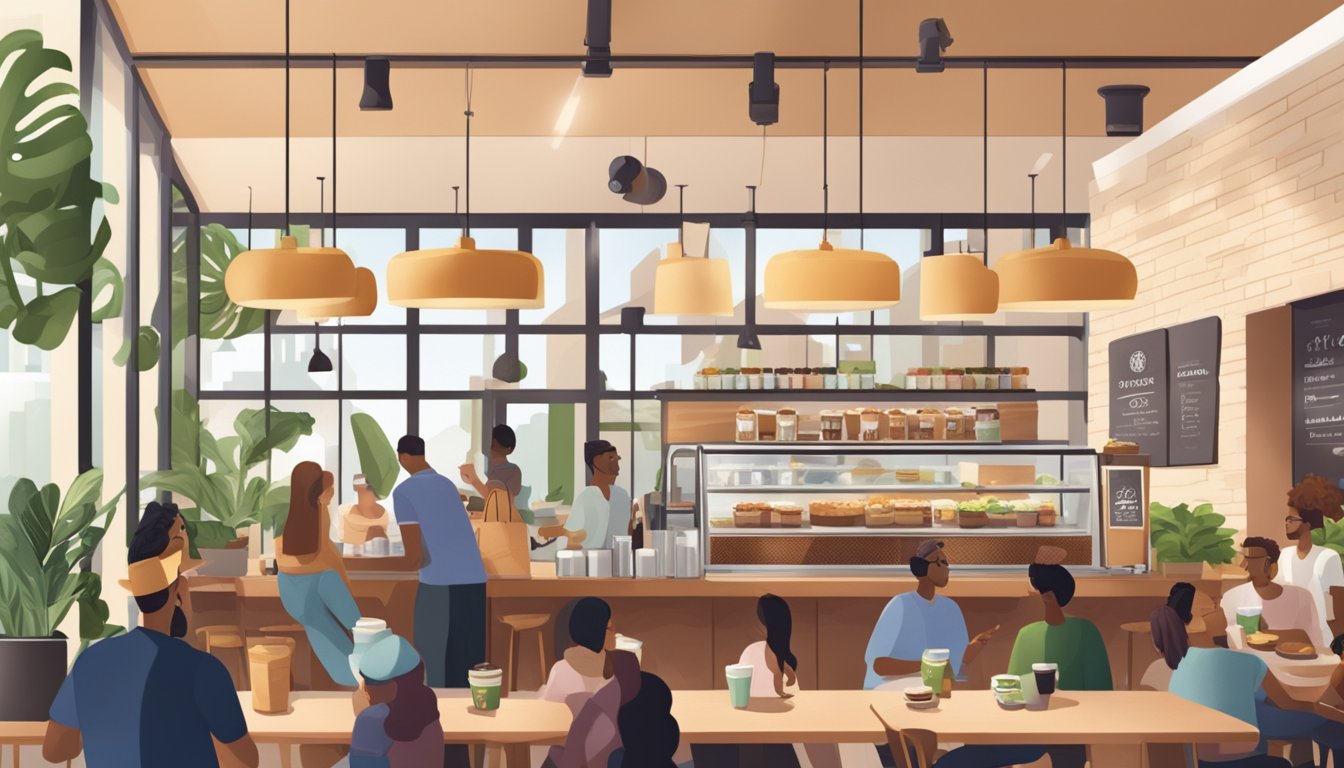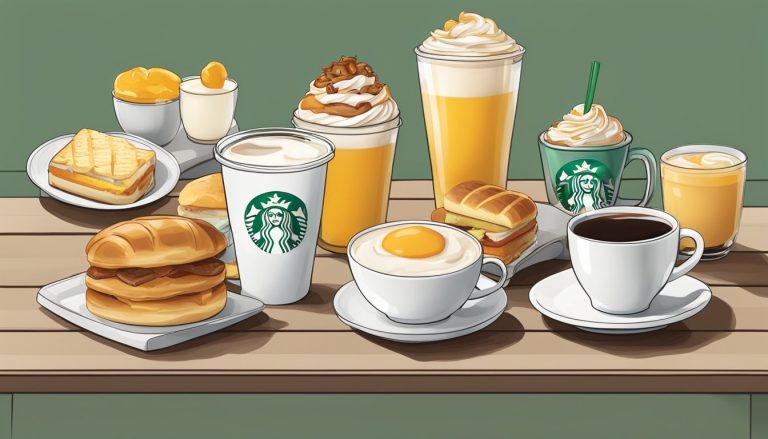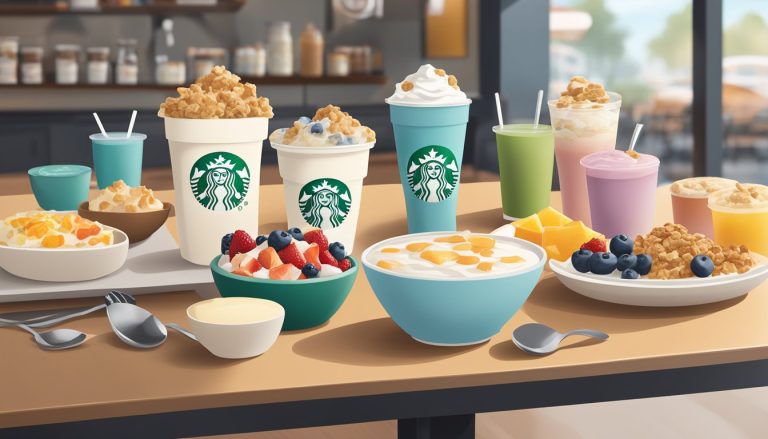Millennials have significantly shaped Starbucks’ breakfast menu in recent years. The coffee giant has adapted its offerings to cater to this generation’s preferences for convenient, yet high-quality morning meals. Starbucks has expanded its breakfast options to include a variety of grab-and-go items, healthier choices, and customizable dishes that appeal to millennials’ desire for personalization and flexibility.
This shift in focus reflects broader trends in the fast-food industry. Research shows that a large percentage of millennials and Gen Z consumers regularly purchase breakfast from food service locations. Starbucks has capitalized on this trend by creating a breakfast experience that aligns with the values and habits of these younger demographics.
The company’s success with millennials extends beyond just food offerings. Starbucks has cultivated a loyal customer base among this generation by providing a complete experience that encompasses atmosphere, technology, and rewards programs. These elements combine to create a breakfast destination that resonates with millennial consumers and keeps them coming back for more.
The Rising Influence of Millennials

Millennials have become a driving force in shaping consumer trends and market dynamics. Their preferences and behaviors are reshaping industries, particularly in the food and beverage sector.
Defining the Millennial Generation
Millennials, born between 1981 and 1996, represent a significant portion of the global population. This generation came of age during the digital revolution, shaping their outlook and habits.
Millennials are tech-savvy, value experiences over possessions, and prioritize social responsibility. They seek authenticity and transparency from brands.
Their purchasing power continues to grow as they advance in their careers. This economic influence makes them a key demographic for businesses across various sectors.
Millennial Consumer Behavior
Millennials exhibit distinct consumer behaviors that set them apart from previous generations. They prioritize convenience, quality, and customization in their purchases.
This generation is more likely to research products online before making a decision. They value peer recommendations and online reviews.
Millennials are willing to pay more for products that align with their values. Sustainability, ethical sourcing, and social impact are important factors in their buying choices.
They prefer brands that offer personalized experiences and engage with them on social media platforms.
Impact on Market Trends
Millennial preferences have significantly influenced market trends, particularly in the food and beverage industry. Their desire for healthier, more diverse options has led to menu innovations.
Starbucks has adapted its offerings to cater to millennial tastes. The company has introduced more plant-based options and customizable drinks to appeal to this demographic.
According to CivicScience data, millennials are the largest consumers of coffee in America. This trend has driven the expansion of coffee culture and specialty coffee shops.
Millennials’ interest in unique flavors and global cuisines has prompted restaurants to diversify their menus. This shift has led to the rise of fusion cuisines and artisanal food products.
Starbucks: Adapting to a New Generation
Starbucks has embraced change to captivate Millennials and Gen Z. The coffee giant has transformed its approach to technology, rewards, and branding to meet the expectations of younger consumers.
Integration of Technology
Starbucks has revolutionized its digital presence to appeal to tech-savvy customers. The company’s mobile app allows for seamless ordering and payment, reducing wait times and enhancing convenience.
Customers can now place orders ahead of time and pick up their drinks without standing in line. This feature is particularly popular among Millennials and Gen Z, who value efficiency and digital solutions.
Social media plays a crucial role in Starbucks’ strategy. With over 2 million Instagram followers, the brand engages young consumers through visually appealing content and user-generated posts.
Rewards Program Success
The Starbucks Rewards program has become a cornerstone of the company’s customer retention strategy. Members earn stars on purchases, which can be redeemed for free drinks and food items.
The program’s digital integration allows members to track rewards, receive personalized offers, and enjoy birthday perks. This gamification element appeals to younger consumers who appreciate loyalty incentives.
Starbucks Rewards has contributed significantly to increased sales and customer loyalty. The program’s success demonstrates the brand’s understanding of Millennial and Gen Z preferences for personalized experiences and digital engagement.
Starbucks’ Brand Evolution
Starbucks has adapted its menu to cater to changing tastes and health-conscious trends. The introduction of alternative milk options and plant-based food items reflects the preferences of younger consumers.
Seasonal beverages, like the popular “Pink Drink,” generate buzz on social media platforms. These limited-time offerings create excitement and encourage customers to share their experiences online.
The company has also focused on sustainability initiatives, aligning with the values of environmentally conscious Millennials and Gen Z. Reusable cup programs and ethically sourced coffee demonstrate Starbucks’ commitment to social responsibility.
Breakfast Offerings: Influences and Innovations
Starbucks has revolutionized its breakfast menu to cater to millennial tastes and preferences. The coffee giant has introduced innovative items and expanded its beverage options, focusing on health-conscious choices and convenient formats.
Menu Changes and Millennial Tastes
Starbucks has revamped its breakfast lineup to appeal to younger consumers. The company introduced the Impossible Breakfast Sandwich, targeting plant-based eaters. This move aligns with millennials’ growing interest in alternative protein sources.
The Bacon, Gouda & Egg Sandwich exemplifies Starbucks’ commitment to premium ingredients and artisanal flavors. By elevating traditional fast-food breakfast items, the company caters to millennials’ desire for higher quality options.
Starbucks expanded its hot breakfast sandwich offerings to nearly 600 stores within three years. This rapid expansion demonstrates the success of these items among millennial customers.
Cold Brew and Beverage Trends
Cold brew coffee has become a cornerstone of Starbucks’ breakfast beverage menu. The company introduced variations like Cold Brew with Cinnamon Almondmilk Foam and Cold Brew with Dark Cocoa Almondmilk Foam.
These innovative cold brew options appeal to millennials’ preference for customizable and Instagram-worthy drinks. The use of plant-based milk alternatives also addresses the growing demand for dairy-free options.
Starbucks continues to leverage its coffee expertise to create unique breakfast pairings. By combining signature coffee offerings with complementary food items, the company enhances the overall breakfast experience for its customers.
Health and Convenience Factors
Millennials prioritize health-conscious choices and convenience in their breakfast options. Starbucks has responded by offering smaller portions and grab-and-go items.
The company has introduced bite-sized portions and mini breakfast options. These products cater to millennials who prefer smaller, more frequent meals throughout the day.
Starbucks has also focused on developing convenient packaging formats. Easy-to-carry containers and portable designs allow customers to enjoy their breakfast on-the-go, aligning with millennials’ busy lifestyles.
By emphasizing healthier ingredients and transparent nutritional information, Starbucks appeals to millennials’ desire for more mindful eating habits.
Social Media’s Role in Shaping Preferences

Social media platforms have become powerful influencers of Millennial consumer preferences, particularly for Starbucks’ breakfast offerings. These digital spaces allow for visual storytelling, community building, and brand connection.
Instagram and Visual Appeal
Instagram’s image-centric nature has reshaped how Millennials interact with food brands. Starbucks leverages this platform to showcase aesthetically pleasing breakfast items, driving desire through visually appealing content.
The platform’s features, like Stories and Reels, enable Starbucks to present breakfast options in creative, bite-sized formats. This approach aligns with Millennials’ preference for quick, engaging content.
User-generated content also plays a crucial role. Millennials frequently share photos of their Starbucks breakfast experiences, inadvertently promoting products to their networks.
Community Engagement
Social media facilitates direct communication between Starbucks and its Millennial customers. Platforms like Twitter and Facebook allow for real-time feedback on breakfast offerings.
Starbucks actively responds to comments and suggestions, fostering a sense of community and co-creation. This engagement makes Millennials feel heard and valued, influencing their loyalty to the brand.
Online polls and surveys about potential breakfast items give Millennials a voice in product development. This participatory approach resonates with their desire for personalized experiences.
Promoting Brand Affinity
Social media campaigns help Starbucks build emotional connections with Millennial consumers. By sharing stories behind breakfast ingredients or highlighting sustainable practices, Starbucks aligns with Millennial values.
Influencer partnerships amplify Starbucks’ breakfast offerings to wider Millennial audiences. Carefully selected collaborations with food bloggers or lifestyle influencers lend authenticity to product promotions.
Social media-exclusive promotions, such as limited-time breakfast offers announced on Instagram, create a sense of exclusivity. This strategy taps into Millennials’ fear of missing out, driving engagement and sales.
Conclusion
Millennials have significantly shaped Starbucks’ breakfast offerings. Their preferences for healthier, customizable options have driven menu innovations and ingredient transparency.
Starbucks has responded by introducing protein-packed items, plant-based alternatives, and grab-and-go meals. These changes cater to millennials’ busy lifestyles and health-conscious attitudes.
The coffee giant’s digital initiatives, like mobile ordering and loyalty programs, have further enhanced the breakfast experience for this tech-savvy generation.
By adapting to millennial tastes, Starbucks has maintained its relevance and market position. The company continues to evolve its breakfast menu, balancing traditional favorites with trendy new items.
This strategy has proven successful, attracting millennial customers while appealing to a broader demographic. Starbucks’ ability to innovate and respond to consumer demands has solidified its place as a breakfast destination for millennials and beyond.




